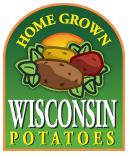In the April 2013 Badger Common’Tater
DNR Water Report: Ag Irrigation Necessary for Growing Crops 
New State Study Shows Water Use by Utilities & Municipalities Dwarfs Agricultural Use
A new study released in February by the Wisconsin Department of Natural Resources (DRN) shows water use from ground and surface water sources totaled 2.156 trillion gallons in 2011. Power generation and municipal uses accounted for 85 percent of that total, while agricultural irrigation accounts for less than 4 percent. The report reveals for the first time that agricultural irrigation accounts for 33 percent of the wells in the state, but just 3.5 percent of the total withdrawal.
“Agricultural water use is very visible, but this report confirms that 96.5% of the water used in this state is used by largely invisible sources, mostly power production and municipal wells,” said Duane Maatz, executive director of the Wisconsin Potato and Vegetable Growers Association (WPVGA).“It also highlights the wonders that potato and vegetable growers work while using a very small fractional part of statewide water,” Maatz said. “The end result is lots of jobs, state and local taxes and a reputation for bringing first-class products to markets throughout the world.” For the full story, read the April issue of The Badger Common’Tater.
The Badger Beat
By Dr. Amanda J. Gevens, Assistant Professor and Extension Plant Pathologist, University of Wisconsin-Madison, Dept. of Plant Pathology
Utility of Seed-Applied Fungicides for Potato Disease Control
At time of writing this article, snow remains on the ground across most of Wisconsin. While hard to fathom, at this time one year ago, we had several days with air temperatures at and above 80°F! The transition to spring in Wisconsin is mercurial, often with continued fluctuations in temperature and moisture throughout potato planting and early emergence.
Wet and cool soils stymie germination and emergence, limiting overall crop health. Such conditions also promote activity of plant pathogens, such as Rhizoctonia solani, a potentially seed-, soil-, or debris-borne fungal pathogen which causes stem or stolon cankers resulting in reduced stands, stunted plants, and/or reduction in tuber number, size, or quality. Later in the season, Rhizoctonia can also cause black scurf on tubers. Cultural management approaches such as planting when soil temperatures are more consistently above 46°F, planting into well-drained soils, avoiding planting too deep, and avoiding hilling prior to adequate emergence can limit early season stem and stolon canker. For more details, check out the April edition of The Badger Common’Tater magazine.
Wisconsin Farmers Provide Produce to Those Facing Hunger

Paul Miller is shown in a field of carrots. Miller has donated over three acres of carrots to Second Harvest.
Jim Mortenson, a second generation corn farmer, lives by the motto, “It’s better to give than to receive.” So when he heard of a neighboring farmer working with Second Harvest to provide nutritious carrots to families in southwestern Wisconsin facing hunger, he knew he wanted to get involved.
“There should be no reason for anybody being hungry in America,” Mortenson said. “It’s inexcusable!”
Jim is the latest in a growing list of farmers to join the Field to Foodbank program, a three-prong program designed to capture Wisconsin-grown produce for distribution to those facing hunger. He donated fresh corn which, in collaboration with the University of Wisconsin, food processing, canning and transportation companies, resulted in 94,000 cans of corn that were quickly distributed to Second Harvest partners throughout southwestern Wisconsin. Del Monte Foods of Plover processed the corn that Mortenson donated.
In a ceremony held at the offices of Second Harvest Foodbank of Southern Wisconsin, Paul Miller, of Paul Miller Farms in Hancock and Dave Beggs of Patrykus Farms, Bancroft, were recognized for their participation in Second Harvest’s Field to Foodbank program. Since the program’s inception in 2011, Miller has donated more than three acres of carrots; which, after processing, equals over 140,000 cans of carrots. Dave and Kelly Beggs have donated almost 26 tons of carrots to help local families struggling with hunger. Read more in the April edition of The Badger Common’Tater.


